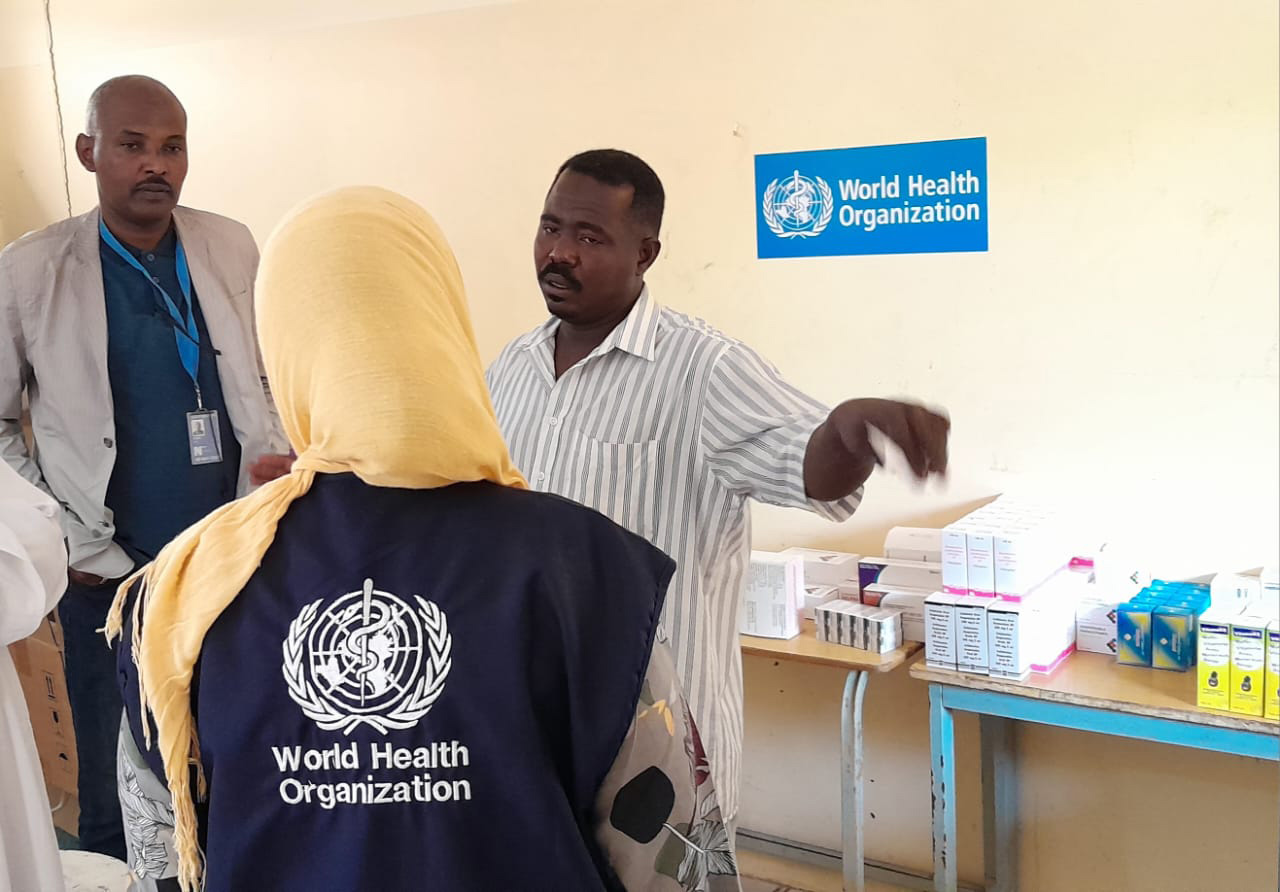16 October 2023 — The war that broke out in Sudan 6 months ago has plunged the country into a complex humanitarian crisis. The conflict has pushed an already vulnerable population deeper into food insecurity, heightened exposure to diseases and threats to personal safety and security, and reduced access to health care. More than 5.8 million people have had to flee for their lives, abandoning their homes and livelihoods to step into the unknown. Moving may lessen the risks from firearms but other imminent risks await, like disease outbreaks, shortages of food and safe drinking water, and a heightened risk of gender-based violence (GBV), especially for women and girls.
WHO is supporting 21 mobile clinics in 8 states across Sudan to provide essential medical services as the armed conflict leaves an estimated 4.4 million people at risk of gender-based violence
When the parents of 7-year-old Fatma* left their home to take the family to settle in a site for internally displaced people, in a state far from their place of residence,* they thought they were protecting the family from threats. They were totally unprepared for what happened to their young daughter at the site: she was subjected to, and survived, GBV.
Fatma’s family sought assistance at a WHO-supported mobile clinic operating in the area when their daughter complained of pain while urinating. Fatma presented with clinical symptoms of urinary tract infection, which was later diagnosed as a sexually transmitted infection. The medical team was able to provide immediate medical assistance and connect Fatma to additional specialized health services and psychosocial support for survivors of GBV to address both her physical and psychological well-being.
Although deeply saddened by what their daughter had had to endure, Fatma’s family are immensely grateful that prompt health care was available and that she will receive follow-up care. “I can only thank Allah and you good people for helping my precious Fatma and stopping her pain,” said her mother, Halima,* speaking to the medical team.
WHO support for 21 mobile clinics and counting
 One of the 21 WHO-supported mobile clinics providing primary health care services in areas of Sudan that lack access to health services. Photo credit: WHO/WHO Sudan
One of the 21 WHO-supported mobile clinics providing primary health care services in areas of Sudan that lack access to health services. Photo credit: WHO/WHO Sudan
As the complex humanitarian crisis in Sudan threatens to keep health services beyond the reach of those who need them most, WHO and health partners are supporting primary health care facilities and mobile health clinics to bridge gaps. Only about 29% of health facilities in conflict-affected areas are functional. WHO currently supports 21 mobile clinics across 8 states and has plans to add a further 3 such clinics.
The mobile clinics that WHO has deployed offer essential and life-saving services, including clinical and psychosocial support to survivors of GBV. These mobile units operate out of clinics or any other suitable space within reach of displaced people and host communities. The mobile clinics have provided primary health care services from health facilities, school buildings, sites for internally displaced people, tents and even in the shade of trees.
The mobile clinics are run by government health workers using basic equipment from government health facilities. WHO provides medical supplies and covers operational costs, including incentives for the health workers to run the services.
“Everyone needs to be trained on GBV first-line support and be able to refer survivors to appropriate care,” said the reproductive health coordinator of one of the Sudanese states hosting the mobile clinics.
An estimated 4.2 million women and children in Sudan are at risk of GBV. Such violence is expected to increase in humanitarian crises as vulnerabilities and risks increase and family and community protections are stretched or collapse. Post-traumatic stress disorder, anxiety and depression are all possible outcomes of sexual violence. Access to psychosocial support is critical in this complex environment to prevent or reduce lasting impacts and suffering caused by sexual violence. All survivors, whether or not they exhibit symptoms of distress, anxiety or depression, should be referred for psychosocial support.
“We are keen to provide both clinical and psychosocial support to survivors of GBV to prevent and treat depression and other psychological and mental health issues resulting from the violence. Because the subject is still taboo, survivors of GBV are often reluctant to report the abuse or seek medical and psychosocial care. We are here to make sure that they get all the care they need,” said Dr Hiba Hussein, Reproductive, Maternal, Newborn and Child Health Officer at WHO Sudan.
With support from the United Kingdom’s Foreign, Commonwealth & Development Office and the Government of Canada, WHO is providing technical support, training of trainers and expert advice to roll out training in GBV first-line support across Sudan. The training will enable health providers to respond supportively to survivors who disclose violence, in a way that meets survivors’ needs and prioritizes their continued safety without intruding on their privacy.
WHO is able to support the 21 mobile clinics to provide life-saving primary health care in 8 Sudanese states through financial support from the United Nations Central Emergency Response Fund.
*Names and locations have been changed to preserve anonymity.





